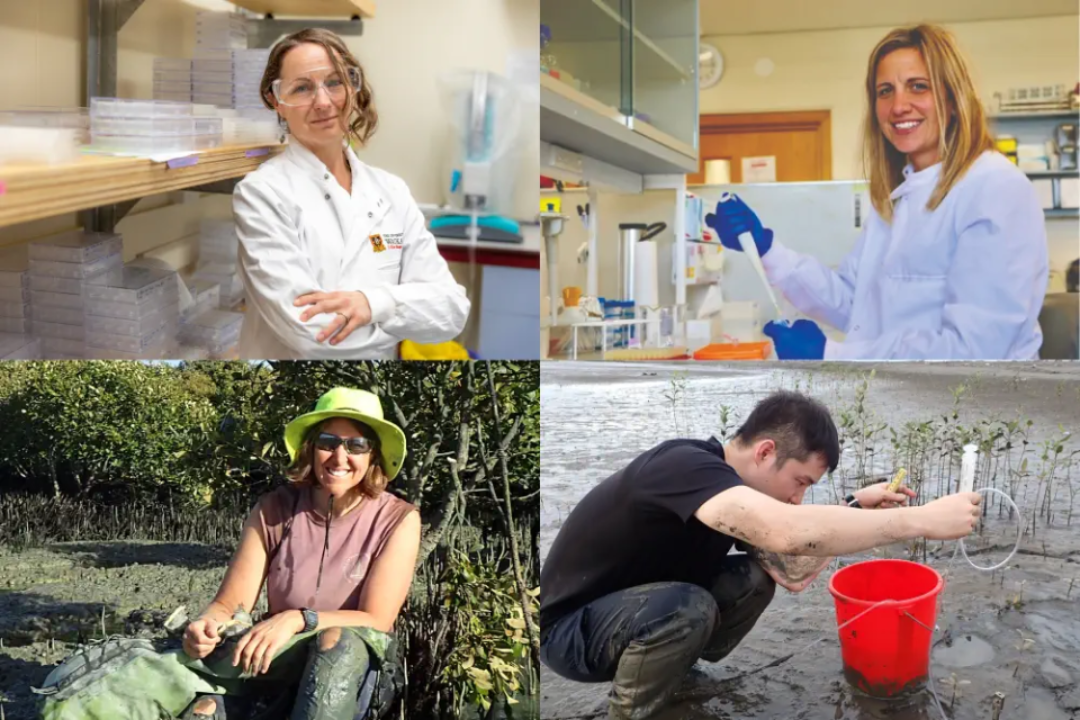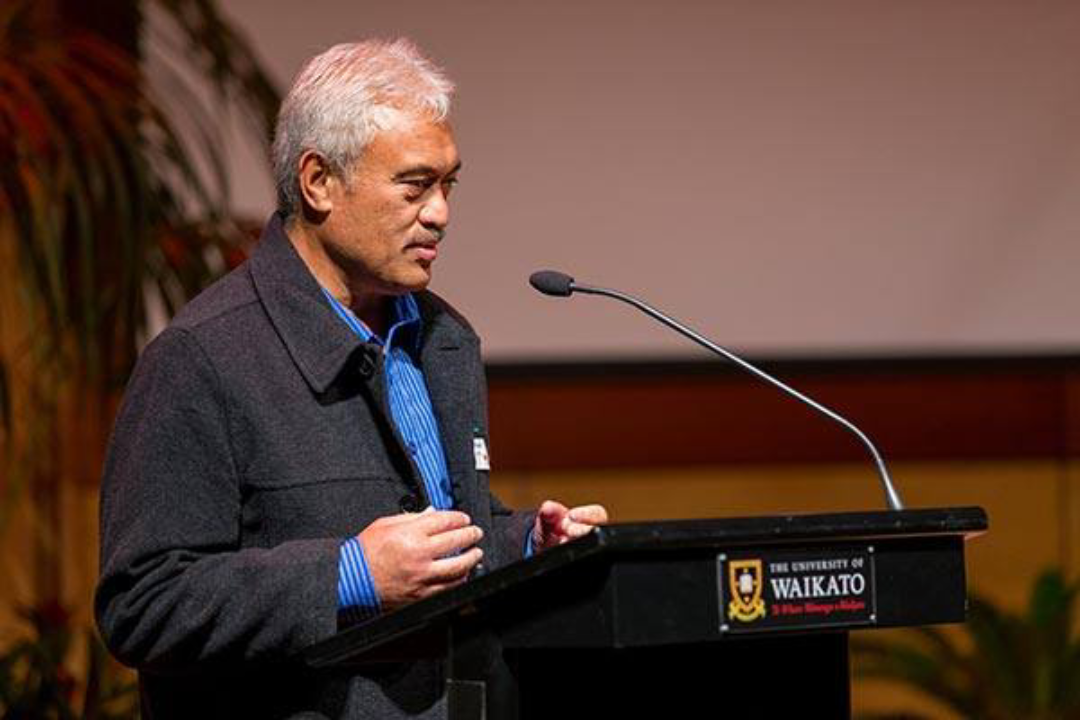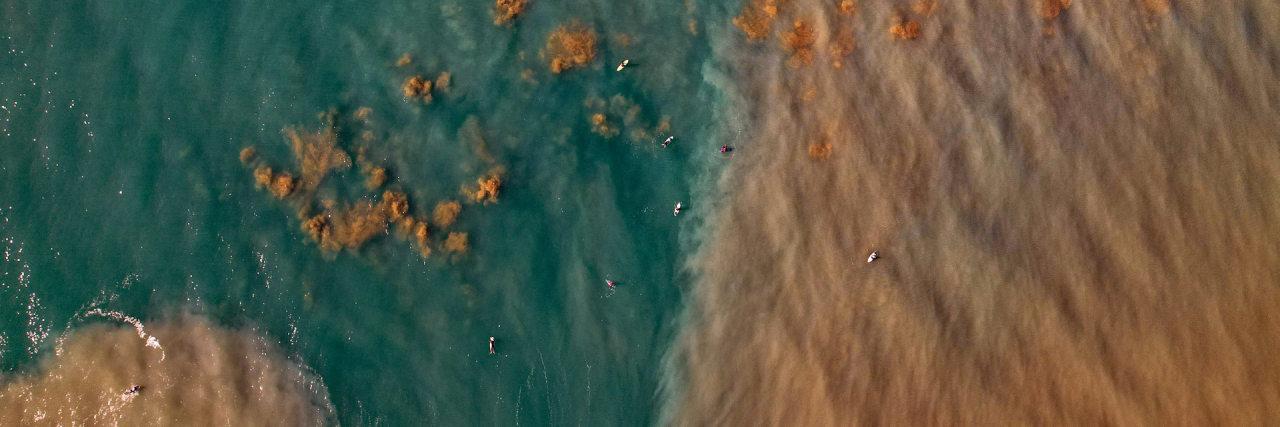University of Waikato researchers have been awarded funding from the prestigious Marsden Fund, securing more than $1.3 million to tackle two of today’s most pressing challenges.
Announced today by the Royal Society Te Apārangi, a group of Waikato researchers will lead or contribute to two projects focused on antibiotic resistance and coastal vegetation.
Tackling the rise of antimicrobial-resistant bacteria
Dr Adele Williamson has been awarded $941,000 to investigate new ways to combat so-called “superbugs” - bacteria that have evolved to resist existing antibiotics.
Antibiotic-resistant bacteria are among the greatest threats to global health and Dr Williamson’s project, ‘Do bacteria repair extracellular DNA to increase antibiotic resistance?’, builds on her discovery of an enzyme known as Lig E, which operates outside bacterial cells to repair broken pieces of DNA.

Clockwise from top left: Dr Adele Williamson, Dr Joanna Hicks, Dr Masaya Yoshikai, Dr Julia Mullarney
Early experiments have shown that bacteria containing Lig E, such as those responsible for causing the infection gonorrhoea, are better able to internalise and use damaged antibiotic-resistance genes – helping them survive treatments that would normally kill them.
Dr Williamson is supported by Waikato’s Senior Lecturer in the Division of Health Dr Joanna Hicks, The University of Western Australia’s Dr Georg Fritz and La Trobe University’s Dr Donna Whelan. Their aim is to determine whether Lig E speeds up the development of antibiotic resistance and to understand how and where it repairs DNA, ultimately slowing or stopping the rise of superbugs.
Modelling nature’s coastal defences
Meanwhile, Dr Masaya Yoshikai’s research on coastal vegetation will receive $360,000 to help create a new computer model that links water movement and sediment processes, using field data and satellite images to better understand how coastal plants like mangroves and salt marshes protect shorelines.
These natural barriers safeguard shorelines from flooding, erosion, and storms while helping them adapt to rising sea levels. However, understanding how such ecosystems evolve over decades remains a challenge.
Dr Yoshikai’s project, ‘Unravelling the missing link to model long-term coastal vegetation dynamics’, will help predict how well natural coastal defences can withstand future climate pressures – offering valuable insight for sustainable ‘eco-engineering’ solutions.
He is supported by Associate Professor in Waikato’s School of Science Dr Julia Mullarney and Dr Giulio Mariotti of Louisiana State University.
The Marsden Fund supports researchers explore bold ideas that can have significant impact on the future of their discipline.
Deputy Vice-Chancellor Research Professor Gary Wilson says he is pleased to recognise the academics awarded funding this year.
“The Marsden Fund recognises research excellence and innovation at the highest level. These awards highlight the creativity and global relevance of our researchers, who are addressing challenges that affect both human health and the environment.
“We’re incredibly proud of their achievements and the potential of their work to create real, lasting impact.”
University staff are also supporting projects led by researchers from other organisations.
Associate Professor in the School of Science Mike Clearwater will work with the Auckland University of Technology to find new ways to measure sap flows in plants using electrical signals and neural networks. He is also an Associate Investigator on a Bioeconomy Science Institute-led project studying the pigment pathways for environmental stress in plants.
Associate Professor in the Division of Health Dr Ryan Paul will work with the University of Canterbury on treating Duchenne muscular dystrophy as a diabetic disease, while Professor Rich Masters and Dr Gloria Clarke, also from the Division of Health, will work to improve CPR uptake through innovative education alongside the University of Otago.



